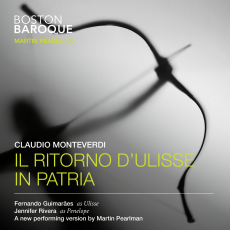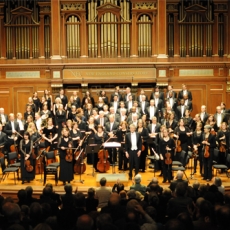Boston Baroque - Monteverdi: Ulisse - Early Music America
Greek myth celebrates the human condition. None better expresses the triumph of mankind than story of the wily and courageous Odysseus (Ulysses). Orpheus the musician was an obvious choice for the first operas, but The Odyssey perhaps better mirrors the Baroque focal shift from the immortal to the earthly. Composed during Monteverdi's last decade, Ulisse's harmonic language is tonally secure but not formulaic. A lyricism reminiscent of his madrigals-particularly in ensembles-makes an elegant balance between recitative and arioso. Martin Pearlman's new performing version offers far more modest orchestration and accompaniment than versions from the 1970s, allowing Monteverdi's ingenious musical personality and dramatic range to shine. The playing of the Boston Baroque orchestra is impeccably concise and clear. The vocal musicians reflect the diversity of the human experience found in the opera. With dark fragility and resolve, Jennifer Rivera aptly portrays the grieving Penelope staunchly rebuffing her suitors. Ericlea (Krista River) and Melanto (Abigail Nims) provide welcome contrast to her suffering. Daniel Shirley's youthful voice (as Eurimaco) imparts a gentle, dreamlike quality in his love duet with Melanto: a touching moment of unison singing. Capturing the confident serenity of the sage Minerva, Leah Wool's opulent and ringing mezzo is a delectable mixture of warmth and metal, the outstanding voice in the cast. Imprecise intonation in the men's voices often evokes human vulnerability. A choice in some cases (as in the characters of Eumete and Iro), it seems inadvertent in others and largely absent in the women's voices. Fernando Guimaräes adeptly portrays the once-mighty Ulisse, now old and mournful, lending an air of fatigue with thinning vocal color in the upper range. The same holds true for Joäo Fernandes (Neptune), who perhaps is not as well suited for a god. The performance's dramatic highpoint is not in the strength but in the tenderness of the reunion. Through a sequence of suspensions in the duet "O padre sospirato," Telemaco (the sonorous Aaron Sheehan) and Ulisse provide the most touching and human musical moment.

